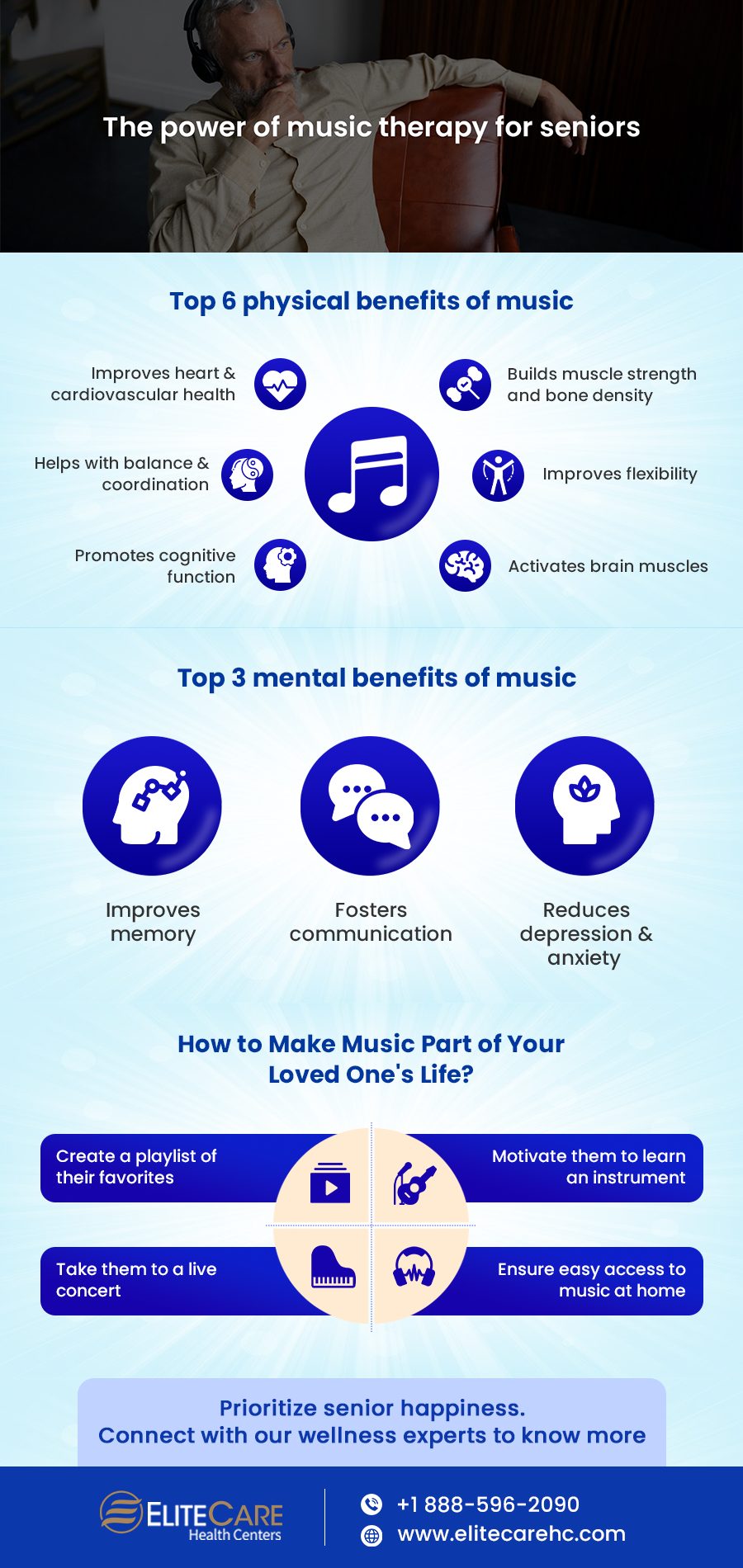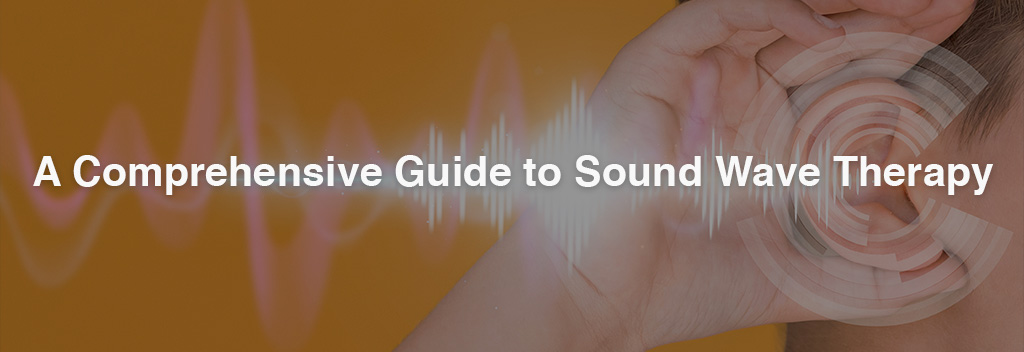
Music can inspire strong feelings, bring back happy memories, and offer a means of self-expression. It should be no surprise that music can be a useful therapeutic tool given its potential to impact our feelings and wellbeing.
Over the past 100 years, music therapy has received recognition and undergone significant changes. Health and wellness centers, schools, and community centers are now offering music therapy. Senior care centers are utilizing the benefits of music to help elders delay the onset of cognitive decline and people already suffering from it. Research also claims that music therapy helps improve mood, social relationships and more in adults.
What is Music Therapy for Seniors?
People of all ages and abilities, including the elderly, who require emotional stability and well-being, have found music therapy to be a beneficial treatment option. Music therapy involves using musical solutions and modalities to help clients achieve their therapeutic goals.
The uplifting qualities of music can also benefit the mental and physical health of the elderly. Seniors with dementia or other cognitive problems may know the words but forget how to apply them in context. Music therapy helps bring back memories or remind listeners of how certain phrases are used in context. They may even want to dance when they hear their favorite music or melody!
Additionally, music therapy can benefit one’s physical health, brain processing, and social and emotional well-being. It is also applied in hospice or palliative care.
Active or receptive music therapy are the two main subtypes:
- Active music therapy
Active music therapy incorporates singing, dancing, or playing instruments. This promotes physical and mental stimulation, which may be good for one’s physical well-being.
- Receptive music therapy
This involves meditative listening to music, usually a carefully selected recording or live music. The songs a person chooses will frequently represent their culture, generation, and life experiences. This helps relax the mind and body. Receptive music therapy is primarily used to treat mental illnesses like anxiety, depression, and cognition difficulties.
Benefits of Music Therapy
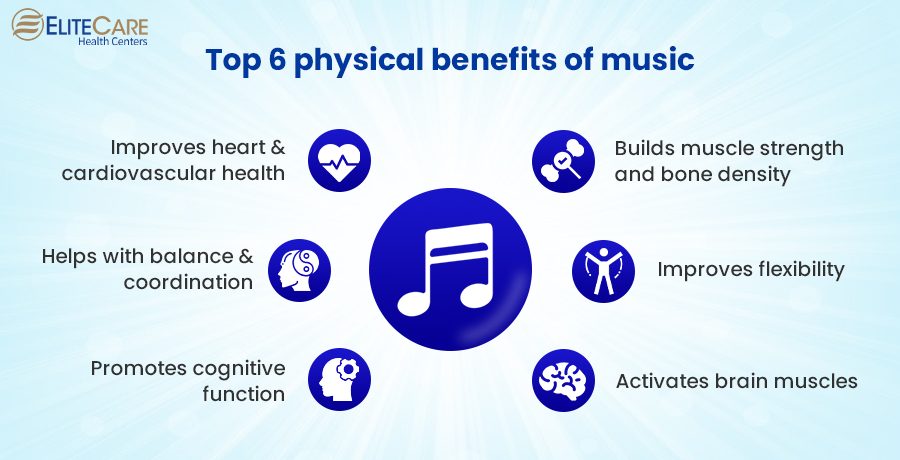
According to studies, listening to music, singing, or playing an instrument can increase the blood flow to various regions of the brain. When blood flow is increased, oxygen and nutrients that can improve brain function are transmitted. Here are a few physical benefits of music therapy,
- Improves heart and cardiovascular health
- Builds Muscle strength and bone density
- Helps with balance and coordination
- Improves flexibility
- Promotes cognitive function
- Activates brain muscles
Here are the top 3 mental benefits of music:
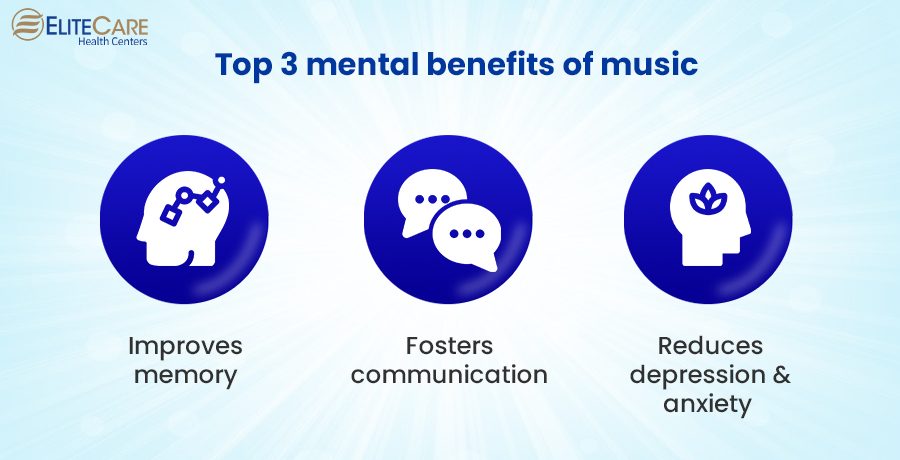
- Improves memory
The music engages both the left and right sides of the brain simultaneously. This helps improve the person’s memory.
- Fosters communication
Music can enhance verbal abilities and encourage seniors to sing, clap their hands, or use other expressive methods of expression.
- Reduces depression and anxiety
Singing, playing an instrument, and listening to music can help with depression and anxiety. Music with upbeat melodies and catchy beats naturally uplifts moods and can encourage a cheerful outlook.
How to Make Music Part of Your Loved One's Life
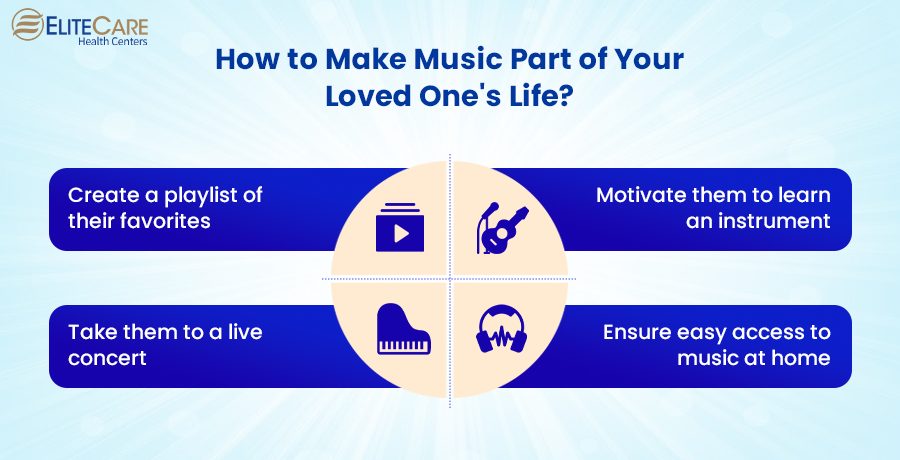
Introducing music into a senior’s life is now easy technology has not only made music instantly accessible but there is now more live music available than ever before. The following are the ways in which you can help the elderly experience music and its benefits:
- Make a customized playlist of songs that you know they will enjoy.
- Bring them to a local live music performance. Especially during the summer months, monthly concerts are common in many places. Keep an eye on the local school district’s timetable in the fall, winter, and spring. Public performances with bands, choirs, and musical ensembles from schools make for great musical experiences.
- Encourage the elderly to learn an instrument. According to studies, activities like performing music are therapeutic for them and might help them feel more confident. Additionally, listening to music can lower blood pressure and slow down the heart rate.
- Caretakers can create ways for seniors to listen to and appreciate music in the comfort of their homes. They can follow the advice of a licensed music therapist, making sure to play the proper music at the right volume for the recommended period. Additionally, they can encourage them to just dance, sing, and enjoy themselves.
Read more: Can Food Improve Your Brain Health?
Final Note
Music therapy has numerous benefits for seniors, both physically and mentally. It is a powerful tool that can make a difference when made part of their daily life. Ensure that your senior loved one listens to music that personally connects with them – in any music therapy setting. Talk about their favorite songs, their wedding songs, or any other musical memories they may have. Help them improve their future quality of life by simply giving them a piece of their history.
For any concerns over seniors’ health, contact EliteCare Health Centers to consult the best geriatricians. You can also take the help of any senior care services to keep them in good health and prevent any severe health issues.
